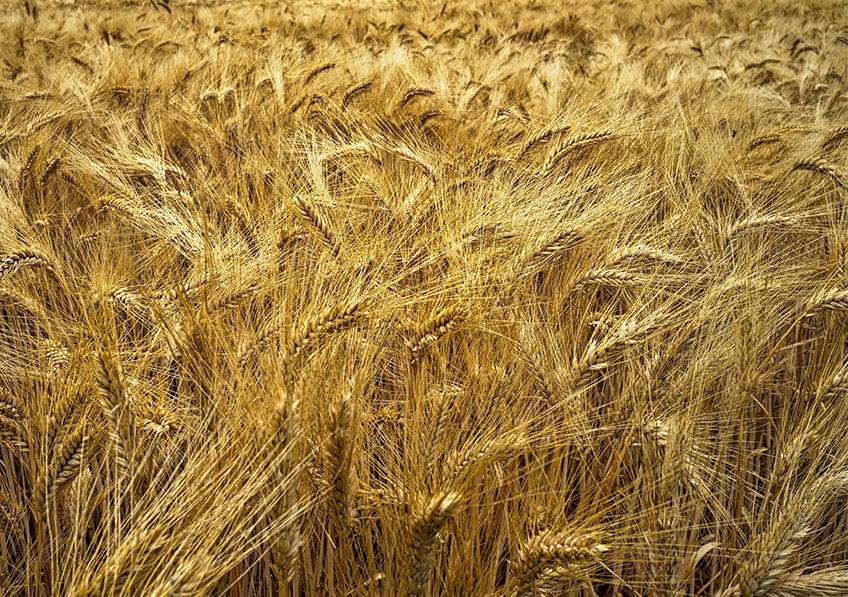Some pesticide cocktails would promote the risk of breast cancer in menopausal women
Wheat field. © Eric Prouzet on Unsplash
Some pesticides used in Europe are suspected of having adverse effects on human health. They cause hormonal disturbances and also have carcinogenic properties, already observed in the workplace. The link between exposure to these pesticides via food and breast cancer in the general population is still little studied. Researchers from a joint INRAE, Inserm, Cnam and Sorbonne Paris Nord University team have already shown that consumers of foods from organic farming in the NutriNet-Santé cohort had a lower risk of breast cancer post-treatment. menopause1. This same team continued its work, this time focusing on exposure to different cocktails of these pesticides in this category of the population. Their work, published on March 15 in the International Journal of Epidemiology, sheds light on the impact of dietary exposure to pesticides on the occurrence of postmenopausal breast cancer.
Currently in Europe, certain pesticides used in large quantities in agriculture are suspected of having deleterious effects on human reproductive health, and could have a role in particular in the occurrence of breast and prostate cancer. They would disrupt the endocrine (hormonal) system and have carcinogenic properties, as has already been observed in populations exposed in their professional environment. However, the link between exposure to these pesticides via food and breast cancer in the general population is little studied, although INRAE, Inserm, CNAM and Sorbonne Paris Nord University researchers have already shown that consumers of foods from organic farming in the NutriNet-Santé cohort presented a lower risk of post-menopausal breast cancer. But then, what is this link between a mixture of pesticides provided by food and the risk of breast cancer in post-menopause?
Their new study, conducted over four years, began in 2014. The participants then answered a questionnaire to assess the consumption of organic and conventional foods. A total of 13,149 postmenopausal women were included in the analysis, constituting the sample for this study, and 169 cancer cases were reported.
Using a database of food contamination according to their mode of production2, the researchers measured exposure to 25 active substances used in the composition of pesticides authorized in Europe, including those used in organic farming.
A method called “Non-Negative Matrix Factorization” (NMF) has made it possible to establish four pesticide exposure profiles, reflecting the different mixtures of pesticides to which we are exposed via the feed. Then, statistical models were used to analyze these profiles, in order to explore the potential link with the risk of developing breast cancer.
The NMF n°1 profile is characterized by high exposure to chlorpyrifos, imazalil, malathion and thiabendazole, synthetic pesticides. In this profile, the researchers note an increased risk of postmenopausal breast cancer in overweight (BMI between 25 and 30) or obese (BMI >30) women. Conversely, the NMF n°3 profile is characterized by low exposure to most synthetic pesticides and a 43% reduction in the risk of post-menopausal breast cancer. The other two profiles identified by NMF were not associated with breast cancer risk.
What are these synthetic pesticides used for?
Chlorpyrifos is used on citrus crops, wheat, stone fruits or spinach for example. Imazalil is also used for citrus, potato and seed crops. Malathion, used to fight against sucking insects (aphids, scale insects) has been banned in France since 2008 but authorized in some European countries. Thiabendazole is used on corn, potatoes and some seedlings.
These results suggest a link between certain pesticide exposure profiles and the occurrence of post-menopausal breast cancer.
But to confirm these data, it is essential on the one hand to conduct experimental studies to elucidate the mechanisms involved, and on the other hand to confirm these results in other populations.1 Baudry J, Assmann KE, Touvier M, et al. Association of Frequency of Organic Food Consumption With Cancer Risk: Findings From the NutriNet-Santé Prospective Cohort Study. JAMA Intern Med. 2018;178(12):1597–1606. doi:10.1001/jamainternmed.2018.43572 This database comes from the European reference laboratory CVUA in Stuttgart
Read in the same category:
Cancer See allPublic health See all
Inserm fully committed to the fight against the Covid-19 pandemic
Inserm fully committed to the fight against the Covid-19 pandemic Covid-19 ...
Covid-19: identification of immune cells associated with survival in severe forms of the disease
Understanding the immune response following infection with SARS-CoV-2 is essential. In a new study, researchers from Inserm and Sorbonne University at the Center for Immunology and Infectious Diseases, in collaboration with medical researchers from AP-HP, are ...
Effects of palm oil on health: what are the dangers?
GO
Vaccination obligation in Lourdes: the employee of a dialysis center dismissed
GO
Charlotte, student midwife: "We are very quickly in autonomy"
GO
Sophie Fontanel poses naked and receives thousands of "Thank you"
GO